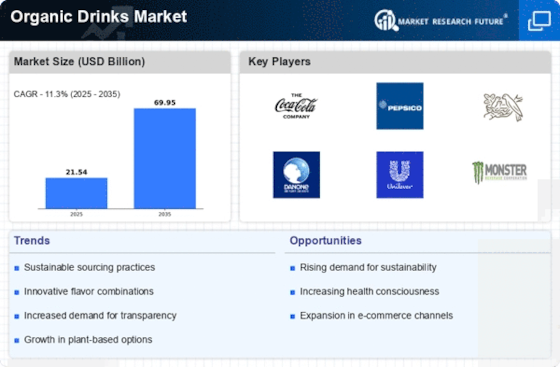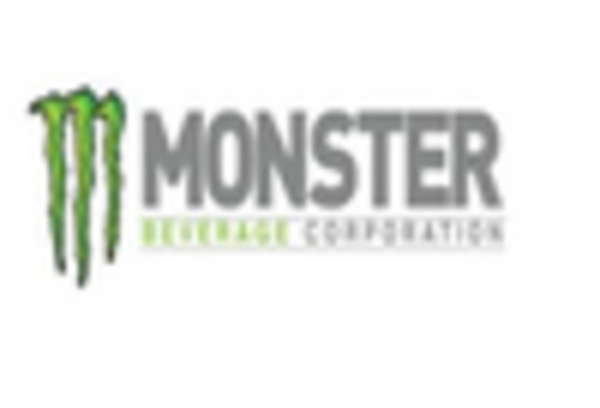Market Trends
Key Emerging Trends in the Organic Drinks Market
The organic drinks market is currently witnessing significant trends that underscore a growing shift in consumer preferences and a broader movement towards healthier and more sustainable beverage options. One noteworthy trend contributing to the market's expansion is the increasing consumer inclination towards organic and natural beverages. Consumers are seeking alternatives that go beyond traditional drinks, placing a premium on products that offer health benefits and are produced through environmentally friendly practices. This trend aligns with a global awareness of the potential advantages of consuming beverages free from synthetic pesticides, herbicides, and genetically modified organisms.
Another key driver of market trends is the rising popularity of organic and natural teas and coffees. These daily staples have seen a notable shift in consumer preferences, with individuals opting for organic variants. The desire for a more wholesome and natural experience in these widely consumed beverages is propelling the growth of the organic drinks market. Consumers are increasingly associating organic with better taste, quality, and health benefits, leading to a surge in demand for organic tea and coffee products.
The market is also witnessing a positive impact from the broader trend of organic food consumption. As consumers become more health-conscious and environmentally aware, the demand for organic products, including beverages, continues to rise. The organic drinks market benefits from this overarching trend, as consumers seek beverages that align with their overall commitment to a healthier and more sustainable lifestyle.
Furthermore, the desire for transparency and authenticity in food and beverage choices is influencing the market trends of organic drinks. Consumers are more interested in understanding the sourcing and production processes behind the products they consume. This has led to increased scrutiny of labels and certifications, with the organic label becoming a symbol of trust and adherence to high-quality standards. Companies in the organic drinks market are responding by providing clear information about their sourcing practices, production methods, and adherence to organic standards to meet consumer expectations for transparency.
Innovation in product offerings is another significant trend shaping the organic drinks market. Key players are focusing on introducing a diverse range of organic drink varieties to cater to evolving consumer tastes. From unique flavor combinations to functional beverages, the market is witnessing a dynamic array of options that go beyond traditional offerings. This innovation not only caters to the changing preferences of consumers but also enhances the overall appeal of organic drinks in the competitive beverage landscape.
The market trends also highlight the global nature of the organic drinks movement. As awareness of health and environmental issues grows, consumers around the world are embracing organic beverages. The demand for organic drinks is not limited to a specific region, indicating a widespread shift towards conscious and mindful consumption on a global scale.


















Leave a Comment